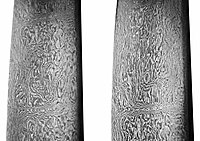
Photo from wikipedia
BACKGROUND: Few neurosurgical studies examine the July Effect within elective spinal procedures, and none uses an exact-matched protocol to rigorously account for confounders. OBJECTIVE: To evaluate the July Effect in… Click to show full abstract
BACKGROUND: Few neurosurgical studies examine the July Effect within elective spinal procedures, and none uses an exact-matched protocol to rigorously account for confounders. OBJECTIVE: To evaluate the July Effect in single-level spinal fusions, after coarsened exact matching of the patient cohort on key patient characteristics (including race and comorbid status) known to independently affect neurosurgical outcomes. METHODS: Two thousand three hundred thirty-eight adult patients who underwent single-level, posterior-only lumbar fusion at a single, multicenter university hospital system were retrospectively enrolled. Primary outcomes included readmissions, emergency department visits, reoperation, surgical complications, and mortality within 30 days of surgery. Logistic regression was used to analyze month as an ordinal variable. Subsequently, outcomes were compared between patients with surgery at the beginning vs end of the academic year (ie, July vs April–June), before and after coarsened exact matching on key characteristics. After exact matching, 99 exactly matched pairs of patients (total n = 198) were included for analysis. RESULTS: Among all patients, operative month was not associated with adverse postoperative events within 30 days of the index operation. Furthermore, patients with surgeries in July had no significant difference in adverse outcomes. Similarly, between exact-matched cohorts, patients in July were observed to have noninferior adverse postoperative events. CONCLUSION: There was no evidence suggestive of a July Effect after single-level, posterior approach spinal fusions in our cohort. These findings align with the previous literature to imply that teaching hospitals provide adequate patient care throughout the academic year, regardless of how long individual resident physician assistants have been in their particular role.
Journal Title: Neurosurgery
Year Published: 2022
Link to full text (if available)
Share on Social Media: Sign Up to like & get
recommendations!